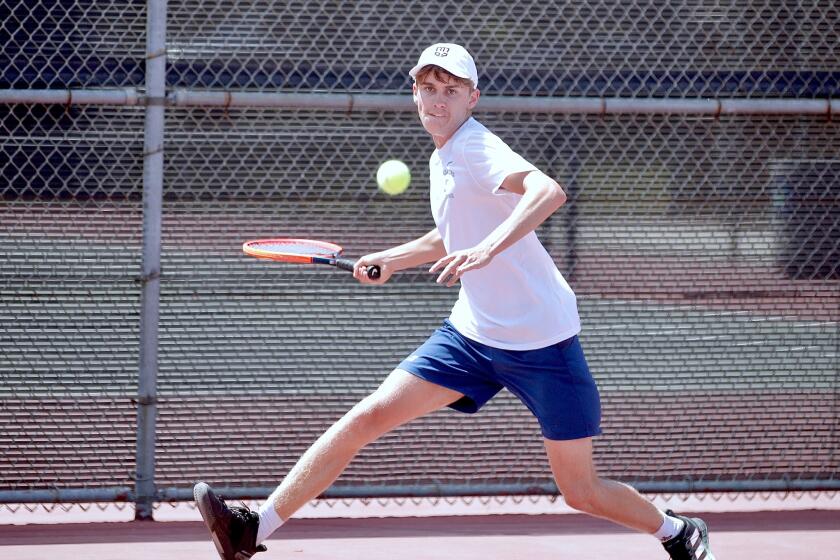Veikko Karvonen, 81; victorious Finnish marathon runner in ‘50s
- Share via
Veikko Karvonen, a Finnish distance runner who ranked as one of the greatest marathoners in track and field history and won a bronze medal at the 1956 Melbourne Olympics, died Wednesday, the International Assn. of Athletics Federation announced, without specifying the cause of death. He was 81.
Although he described the 26-mile, 385-yard race as “a terrible experience: monotonous, heavy and exhausting,” Karvonen ran 34 marathons and won 14, including such elite events as Boston, Athens and Fukuoka, Japan. He won the Boston Marathon in 1954 and finished second twice, in 1953 and 1957, during a stretch when Finnish runners won the race six times between 1954 and 1962.
Karvonen also won what became known as the “wrong way” marathon at the 1954 European championships in Bern, Switzerland. After a difficult course through the Swiss terrain, the first runner to enter the Neufeld Stadium was Ivan Filin, a Russian coalminer competing in his first international event. But as he ran onto the track, Filin inexplicably turned to his left instead of to the right. Before the Russian could correct his course, Karvonen sped into the stadium, turned right and circled home first, with 15,000 spectators roaring. Four hours later race officials declared Karvonen the winner but gave Filin a second gold medal even though he crossed the finish line third.
In his first international competition, Karvonen finished third in the marathon at the 1950 European championships and was third at the 1956 Olympics. At the 1952 Helsinki Olympics, he finished fifth.
Among the top 10 marathoners in the world from 1950 to 1958, Karvonen topped Track and Field News’ rankings in 1951, ’54 and ’55. In 2001 he was rated Track and Field News’ all-time marathon scoring leader.
After retiring from competition, Karvonen coached Finnish marathoners from 1961 to 1964.
He was born Jan. 5, 1926, in Sakkola, a city that was then part of southeastern Finland but after Soviet expansion became Gromovo, Russia. He spent most of his adult life in Turku, in western Finland, working as a mail clerk. In 2002 he was presented Finland’s highest sports award.
More to Read
Go beyond the scoreboard
Get the latest on L.A.'s teams in the daily Sports Report newsletter.
You may occasionally receive promotional content from the Los Angeles Times.










